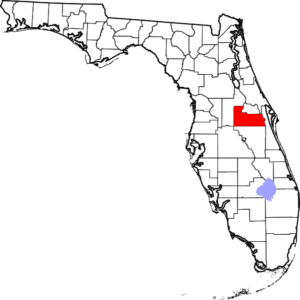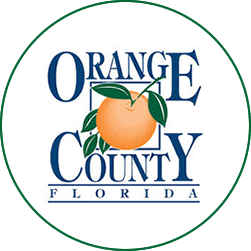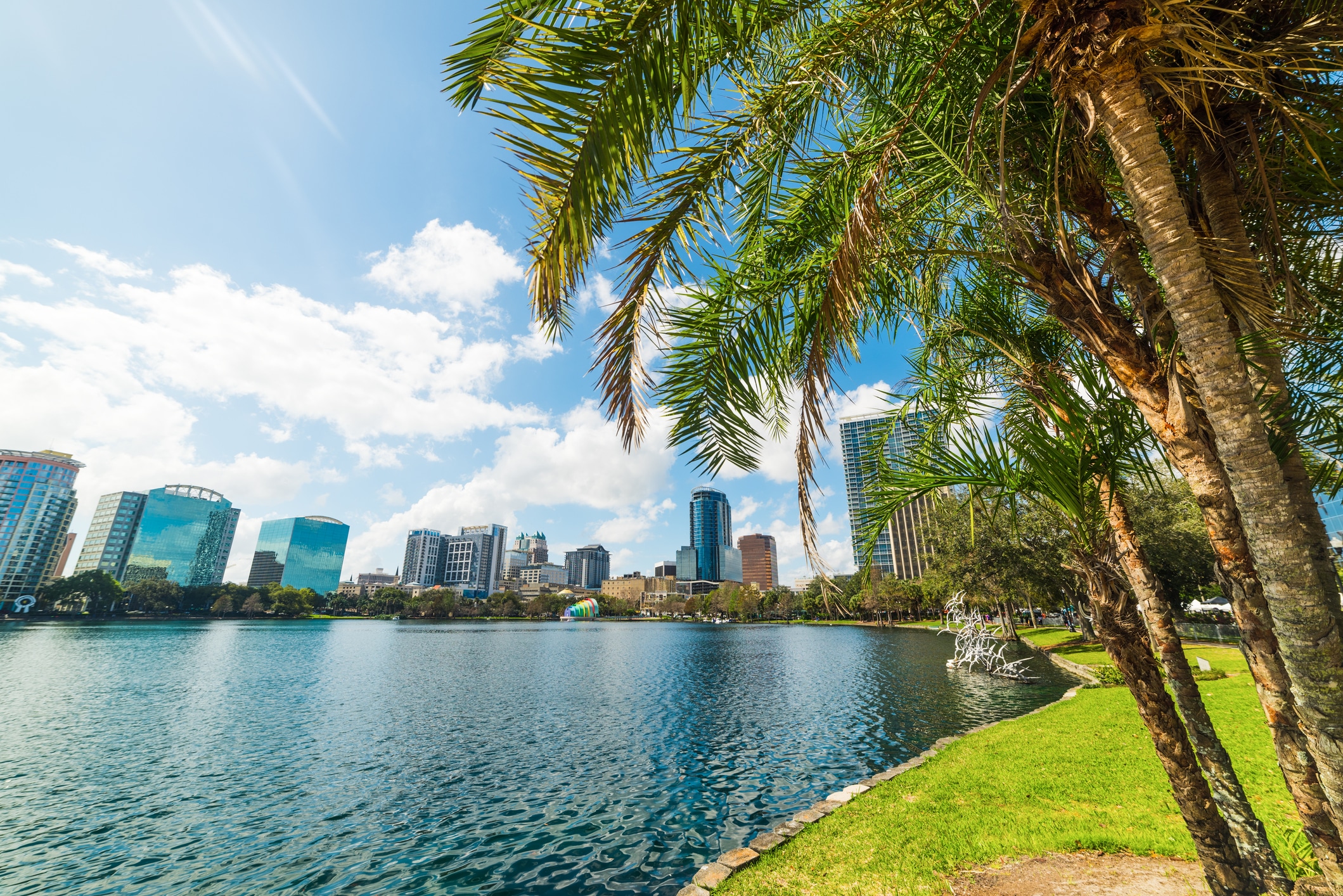Orange County, FL Probate Process For Residents & Non Residents
 If you are navigating the probate process in Orange County, Florida, understanding the steps involved can help streamline the process. In Florida, probate is a court-supervised process in which a deceased person’s assets are identified and beneficiaries are determined. The probate process is designed to ensure that potential creditors have an opportunity to pursue claims against the estate, as well as provide a forum for identifying the correct beneficiaries to receive the decedent’s property. Whether you’re looking for an Orange County probate lawyer, need assistance accessing Orange County Florida probate records, or require a comprehensive Florida probate checklist, our experienced team is here to guide you.
If you are navigating the probate process in Orange County, Florida, understanding the steps involved can help streamline the process. In Florida, probate is a court-supervised process in which a deceased person’s assets are identified and beneficiaries are determined. The probate process is designed to ensure that potential creditors have an opportunity to pursue claims against the estate, as well as provide a forum for identifying the correct beneficiaries to receive the decedent’s property. Whether you’re looking for an Orange County probate lawyer, need assistance accessing Orange County Florida probate records, or require a comprehensive Florida probate checklist, our experienced team is here to guide you.

Florida Probate Process
When someone passes away leaving a valid Last Will & Testament, anyone with possession of the Will must file the original document with the correct circuit court, aka probate court. The original Last Will & Testament and any probate pleadings will be filed in the county of last residence for the decedent. For example, if the decedent passed away as a resident of Orlando, then Orange County would be the correct jurisdiction for a domiciliary probate proceeding. If there is no Last Will & Testament for the decedent, then any probate assets will be distributed according to the Florida intestacy statute, which provides a default distribution scheme for assets based on familial relationships.
In Orange County, the probate process is handled by the 9th Judicial Circuit Court. Depending on the petitioner’s address, the county will determine which courthouse the case is assigned to. There are four Courthouse locations in Orange County – one Central Judicial Complex and three Regional Courthouses:
- Orange County Courthouse – 425 N. Orange Avenue, Orlando, Florida 32801
- Apopka Clerk of Courts – 1111 N. Rock Springs Road, Apopka, Florida 32712
- Ocoee Clerk of Courts – 475 W. Story Road, Ocoee, Florida 34761
- Winter Park Clerk of Courts– 450 N. Lakemont Avenue, Winter Park, Florida 32789
Probate Assets
 The most relevant factor in determining if a probate is necessary, is assessing if there are any probate assets, as oppose to non-probate assets. Probate assets are those titled in the sole name of the decedent, and do not have a beneficiary designation or POD feature. All probate assets are frozen and can only be transferred through the probate process. There are many types of non-probate assets, such as real estate titled in the sole name of the decedent, jointly held property, IRAs and life insurance proceeds payable to a beneficiary, and more.
The most relevant factor in determining if a probate is necessary, is assessing if there are any probate assets, as oppose to non-probate assets. Probate assets are those titled in the sole name of the decedent, and do not have a beneficiary designation or POD feature. All probate assets are frozen and can only be transferred through the probate process. There are many types of non-probate assets, such as real estate titled in the sole name of the decedent, jointly held property, IRAs and life insurance proceeds payable to a beneficiary, and more.
The first step in identifying probate assets is to confirm how the decedent’s real estate is titled by visiting the Orange County Property Appraiser. If the property appraiser report and most recent deed confirm that the real estate, aka real property, is in the sole name of the decedent, then a probate will be required in order to eventually sell or transfer the property. Often the goal is to sell the piece of real estate during the probate process, and to have the proceeds divided among the identified beneficiaries. It is advisable to wait until an estate is open, and a personal representative is appointed before executing any type of sales contract.
The second step for identifying probate and non-probate assets is to check the mail of the decedent, since financial institutions and insurance companies will periodically send correspondence regarding accounts. The personal representative of the estate, or the immediate family members of the decedent, should have the decedent’s mail forwarded to a convenient location by requesting a change of address or mail forwarding with the United States Postal Service. The request can be made on the USPS website, or in person at a branch location.
Restricted Depositories
In some formal probate administrations in the 9th Judicial Circuit (Orange County), a restricted depository or a bond may be required. This refers to a court-restricted bank account that is set up under the name of the estate and used to deposit estate funds. When a restricted depository is required, a court order is necessary to release funds, even to pay the estate’s expenses. Unlike some counties, the 9th Judicial Circuit of Orange County does not require restricted depositories on all probate administrations.
Consult with an experienced Orange County probate attorney for the best techniques for establishing a restricted depository and expediting the administration.
Ancillary Probate for Non-Residents
Ancillary probate refers to a secondary probate proceeding that takes place in any state other than the domiciliary state. Ancillary probate is necessary to transfer or sell real estate, aka real property, located in any state other than the decedent’s domiciliary state.
After someone passes away, the first step in the probate process is to establish the domiciliary estate in the decedent’s state of residence. Once a personal representative, or executor is appointed for the domiciliary proceeding, the next step is to petition to initiate the ancillary probate in the county in which the real estate is located.
As an example, John lives in California but owns a vacation home in Orlando. When John passes away, his Last Will & Testament must be submitted to his local probate court in California to begin the domiciliary probate process. A second probate process must also be started in Orange County, Florida to transfer the home in Orlando to his beneficiaries, or to clear title to a new owner via the sales process.
Generally, ancillary probate administration is required in Florida when someone who was not a Florida resident dies and:
- Owned Florida real estate
- Owned a Florida timeshare
- Owned Florida property or liability that would require the signature of an appointed personal representative in Florida for transfer, collect, or discharge
Ancillary probate in Orange County, Florida can complicate the already time-consuming and sometimes costly probate process, but it is the only way to pass Florida real estate to the rightful beneficiaries. Because ancillary probate has the potential to prolong the domiciliary probate proceeding, it’s crucial to work with a skilled Florida ancillary probate attorney.
An experienced ancillary probate lawyer in Orange County can assist with every step of the probate process, and potentially serve as a personal representative to prevent potential delays and finalize the probate as quickly and smoothly as possible.
If you need assistance with probate in Orange County, Florida, contact the Florida Probate Law Firm for a free 30 minute consultation at (561)-210-5500.

The Florida Probate Law Firm proudly serves all municipalities in Orange County, FL
- City of Apopka
- Plymouth
- City of Belle Isle
- Town of Eatonville
- City of Edgewood
- City of Maitland
- Town of Oakland
- City of Ocoee
- City of Orlando
- Town of Windermere
- City of Winter Garden
- City of Winter Park
- City of Bay Lake
- City of Lake Buena Vista
- Andover Lakes
- Avalon
- Azalea Park
- Bay Hill
- Bithlo
- Christmas
- Conway
- Cypress Springs
- Doctor Phillips
- Fairview Shores
- Goldenrod
- Gotha
- Holden Heights
- Hunters Creek
- Lake Butler
- Lake Hart
- Lake Nona
- Lockhart
- Meadow Woods
- Oak Ridge
- Orlo Vista
- Paradise Heights
- Pine Castle
- Pine Hills
- Sky Lake
- South Apopka
- Southchase
- Taft
- Tangelo Park
- Tangerine
- Tildenville
- Union Park
- University Park
- Vineland
- Vista Lakes
- Waterford Lakes
- Wedgefield
- Williamsburg
- Zellwood
If you need assistance with probate in Orange County, Florida, contact the Florida Probate Law Firm for a free 30 minute consultation at (561)-210-5500.

